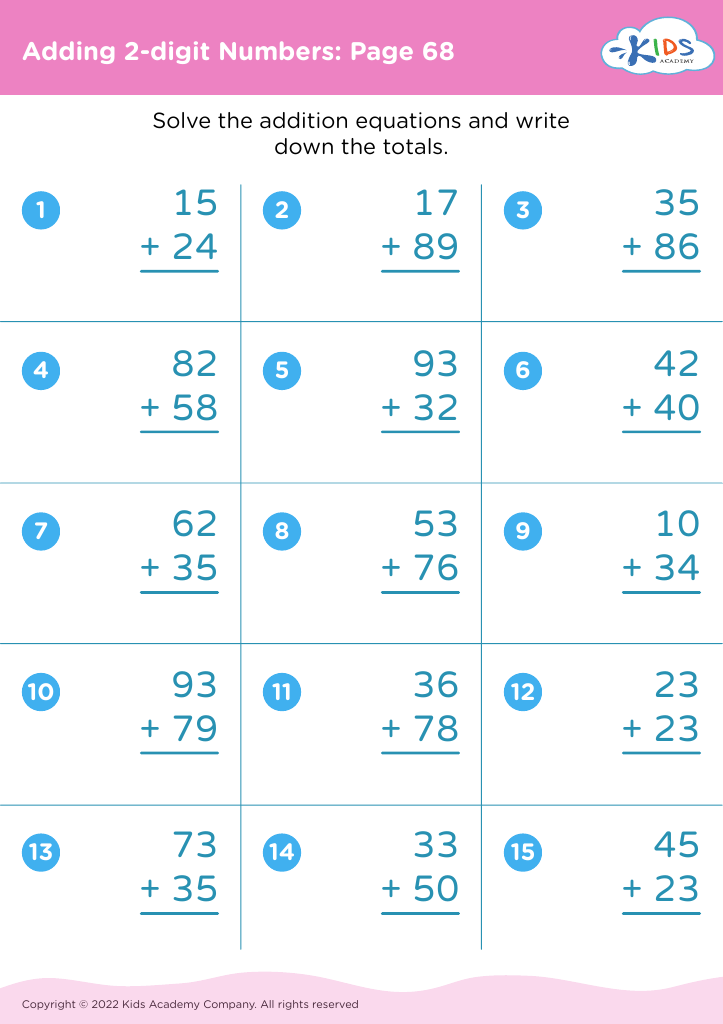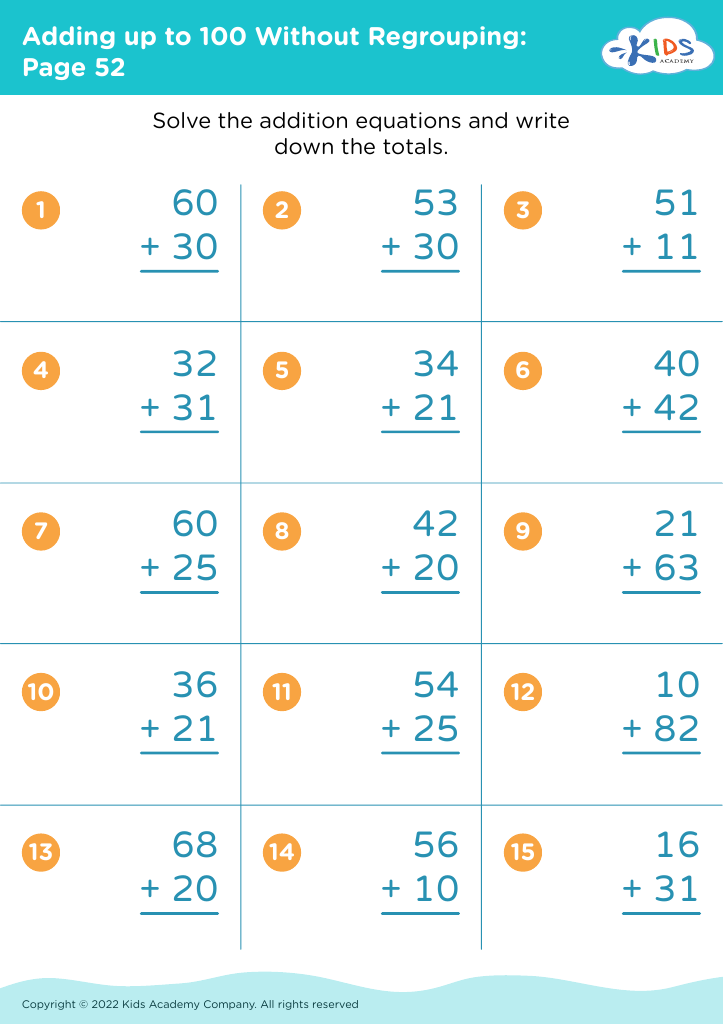Numeracy skills Addition & Subtraction Worksheets for Ages 6-9
10 filtered results
-
From - To
Enhance your child's numeracy skills with our engaging Addition and Subtraction Worksheets, specially designed for ages 6-9. These printable resources offer a fun and interactive way to support early math learners. Our worksheets feature a variety of exercises that promote mastery in basic addition and subtraction concepts, helping children develop confidence in their problem-solving abilities. Each worksheet is crafted to cater to different learning styles, ensuring that every child finds the practice both enjoyable and beneficial. Download our worksheets today and watch your child's mathematical skills flourish as they explore the world of numbers with creativity and enthusiasm!
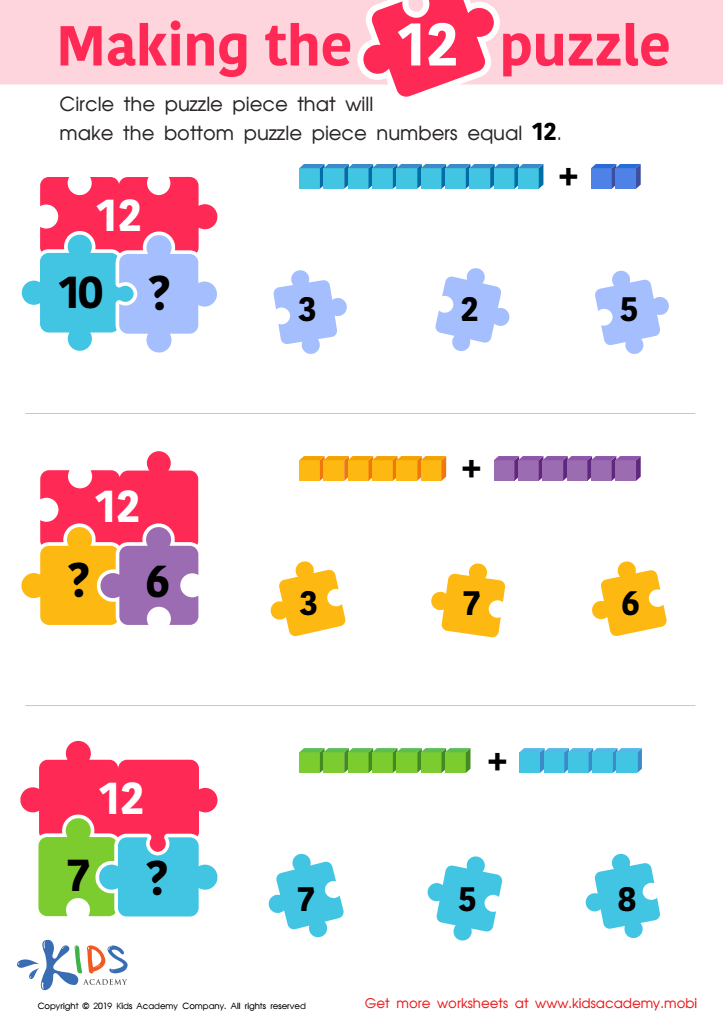

Making the 12 Puzzle Worksheet
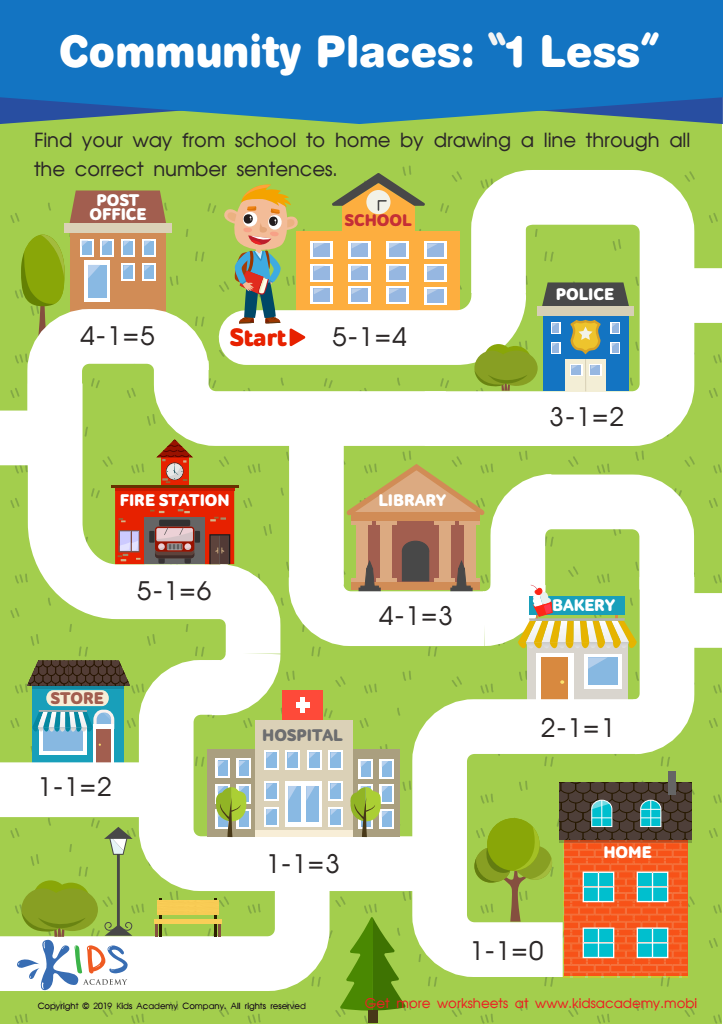

Community Places: 1 Less Worksheet
Numeracy skills, particularly addition and subtraction, are foundational for children aged 6-9 as they significantly influence their overall academic and life success. During these formative years, children transition from concrete understanding of numbers to more abstract problem-solving abilities. Mastering basic arithmetic allows them to build confidence in their mathematical skills, fostering a positive attitude towards learning that can carry through their educational journey.
Furthermore, addition and subtraction are critical for everyday life, enabling children to perform tasks such as managing allowances, understanding time, and making sense of quantities in cooking or shopping. These skills also serve as a platform for more advanced mathematics, which becomes increasingly complex in later grades.
For teachers and parents, supporting children in developing these skills equips them with essential tools for critical thinking, strategy, and logical reasoning. Moreover, proficiency in numeracy contributes to children’s overall cognitive development, enhancing their readiness for academic challenges. By engaging children through engaging activities, games, and real-life applications, adults can foster a love for learning that nurtures not only their mathematical abilities but also promotes resilience and problem-solving, projected growth, and a lifelong appreciation for learning.


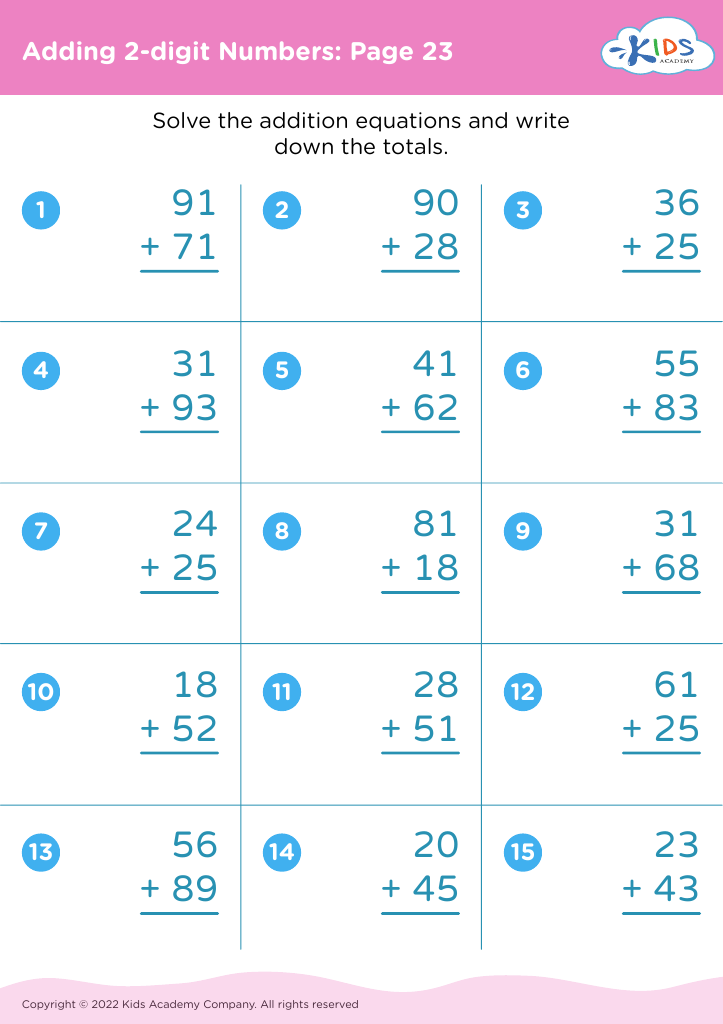

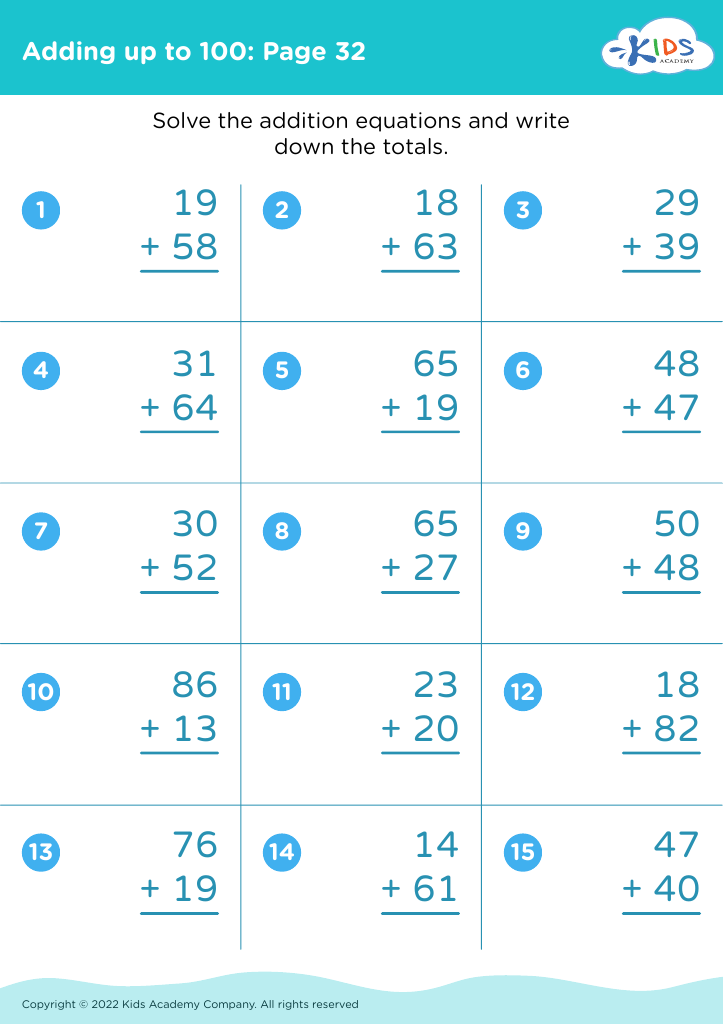


 Assign to My Students
Assign to My Students

